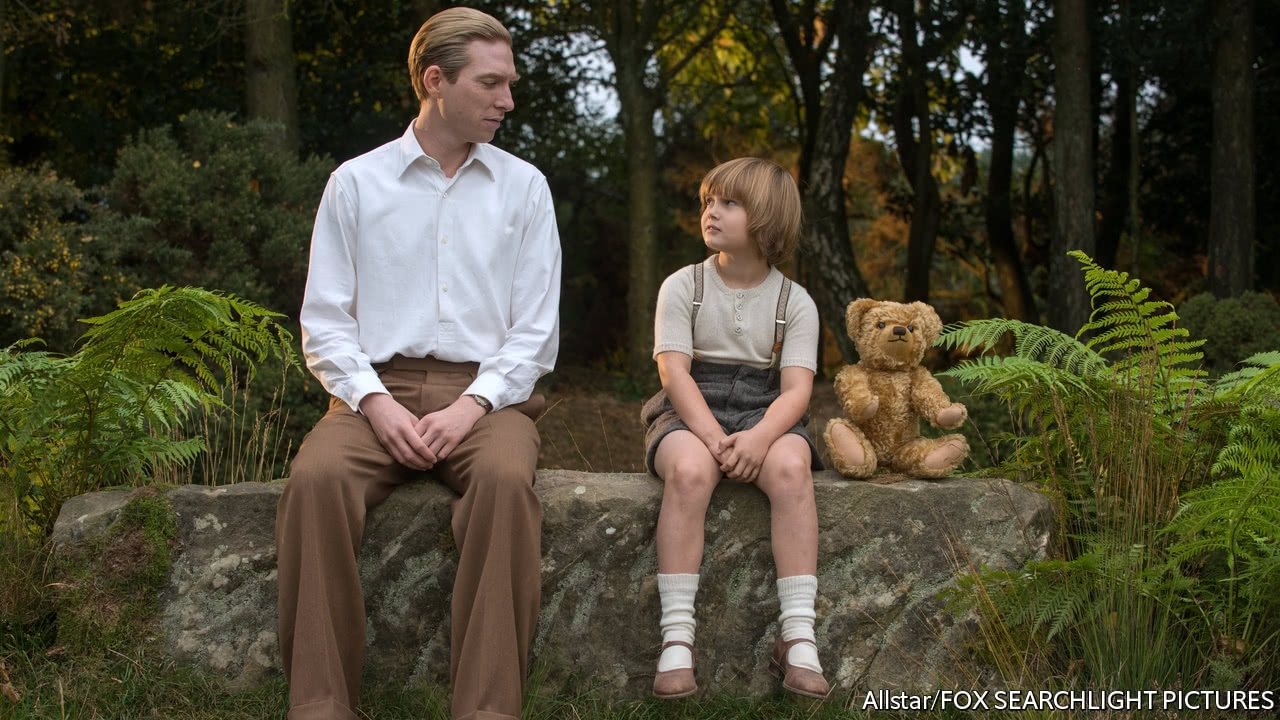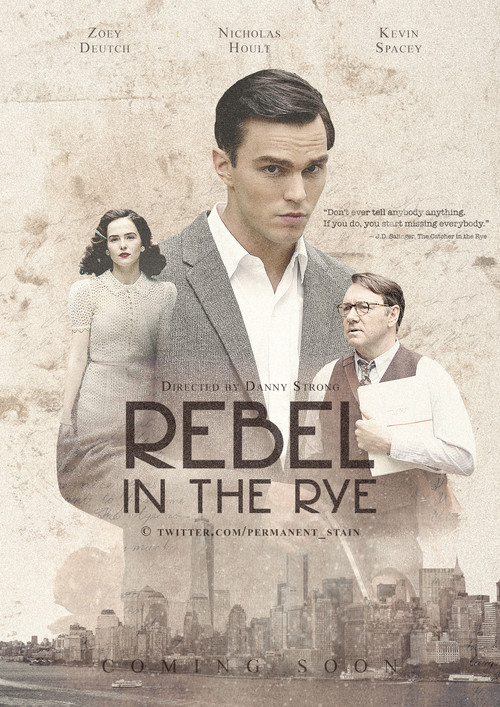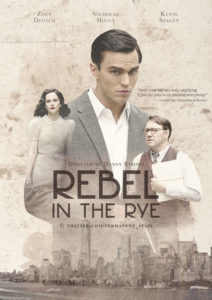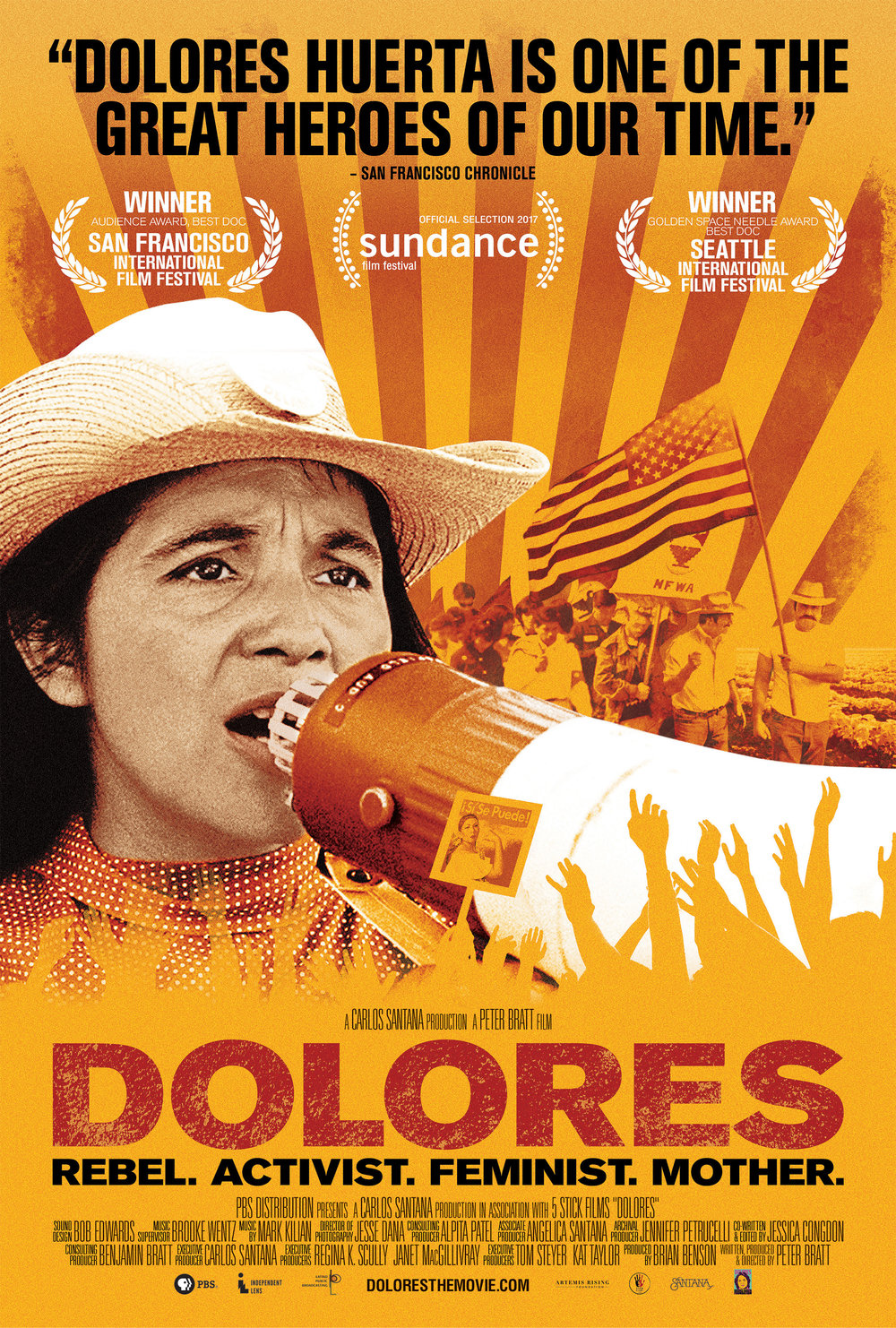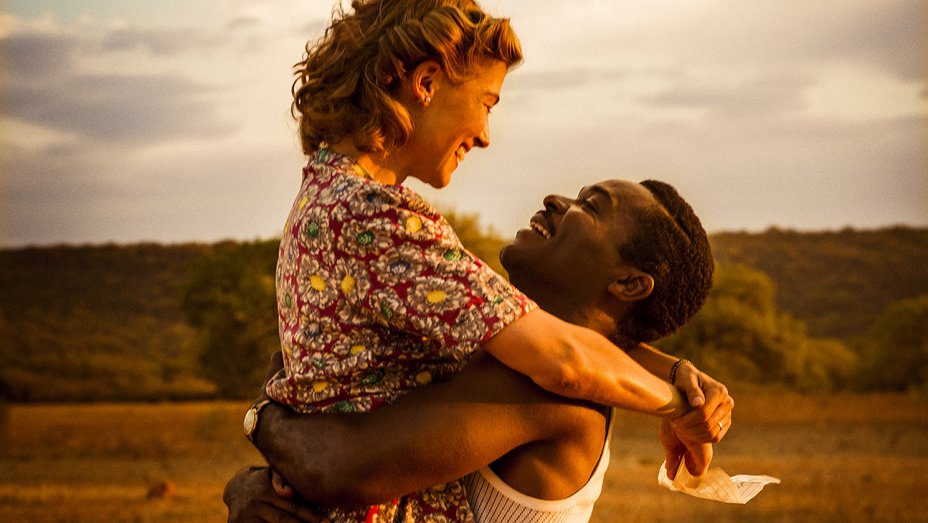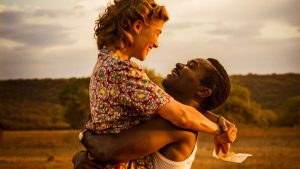Goodbye Christopher Robin
Posted on October 12, 2017 at 5:53 pm
C| Lowest Recommended Age: | Middle School |
| MPAA Rating: | Rated PG for thematic elements, some bullying, war images and brief language |
| Profanity: | Brief strong language |
| Alcohol/ Drugs: | Alcohol |
| Violence/ Scariness: | Wartime violence, post-traumatic stress |
| Diversity Issues: | None |
| Date Released to Theaters: | October 13, 2017 |
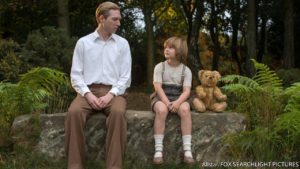
This telling of the story behind the creation of some of the world’s most beloved books for children is sincere and well-intentioned but what Pooh might call a bit of a muddle. The movie is not at all clear about whose perspective it is giving us or what story it is trying to tell.
Author A.A. Milne, called Blue by his family and played by Domhnall Gleeson, was a successful playwright and humorist before the Great War, but came back badly shaken from the experience of combat and carnage. His wife Daphne (Margot Robbie) is affectionate but impatient. Neither one of them is very interested in their son, Christopher Robin (Will Tilston), who spends most of his time with his devoted nanny, Nou (Kelly Macdonald). Milne insists the family move to the country, where Daphne feels isolated from the parties and friends she enjoys. She goes back to London, saying she won’t return until Milne begins to write again, just as Nou has to take some time off to care for her mother. This leaves Milne alone with his son, called Billy Moon by the family, and for the first time they spend time together, playing in the woods with the child’s stuffed bear, named Winnie after the bear in the zoo. It is these days that inspire the two chapter books and two books of poems that have been read aloud to generations of children who have grown up and read them to their own children, plus, Disney movies and a television series (Disney now own the rights to the characters) and more books and toys.
And it is these days that are the best part of the film, especially when Milne’s friend, the illustrator Ernest Howard Shepard (Stephen Campbell Moore) comes to visit, and we see the stories Milne and Billy Moon tell melting into the sketches that are as beloved as the writing.
The problem is the rest of the movie, which is really four movies fighting with each other, none of them very good. There is the story of a shattered veteran trying to find a way to return to civilian life and work that is meaningful to him. There is the story of a man and a boy who do not realize how much they need each other discovering a common language. There is the story of enormous success that benefits one family member but at great cost to another. The stories lead to feelings of betrayal and bitterness when Billy Moon becomes famous, more famous than his father, and much more famous than his boarding school classmates. And there is the story of estrangement and partial reconciliation.
It is never clear what the point of view of the movie is, or what the point of the movie is. Is it that art can be healing and wounding at the same time? Is it that behind tales of wonder and enchantment there can be pain and bitterness? Fans of the Winnie the Pooh books may enjoy some of the classic biopic “ah, that’s where this part I loved came from” moments, but they do not provide any additional insight or depth to the work itself, not even an exploration of what the books have to say about childhood and whether they represent a child’s perspective or a parent’s. Most of all, unlike Pooh, Piglet, Kanga, Roo, and Owl, these characters are not very interested or interesting.
Parents should know that this movie includes wartime violence, PTSD, marital estrangement, sad offscreen death of a parent, apparent death of a child, and social drinking.
Family discussion: What should Blue and Daphne have done differently? Why did Christopher want to go into the army? Is “the great thing” finding something to be happy about?
If you like this, try: the books of A.A. Milne

